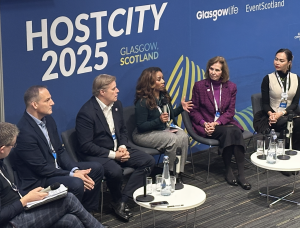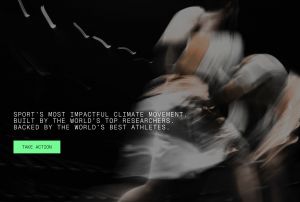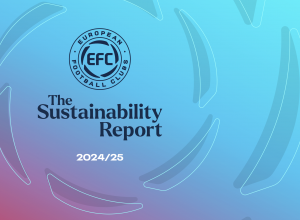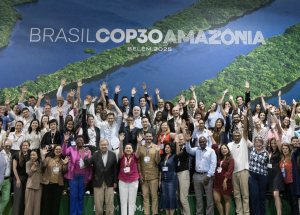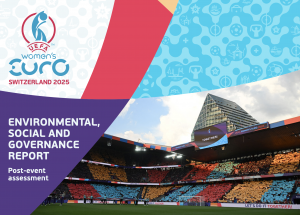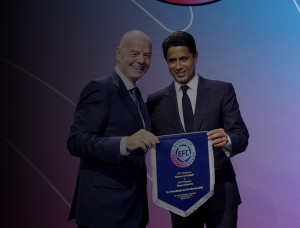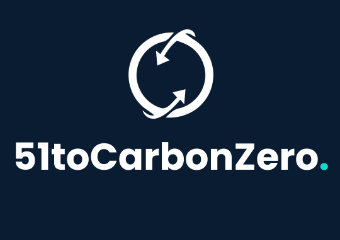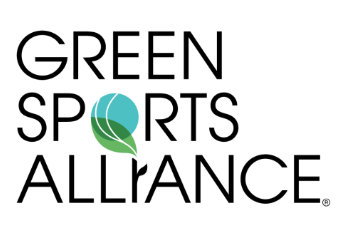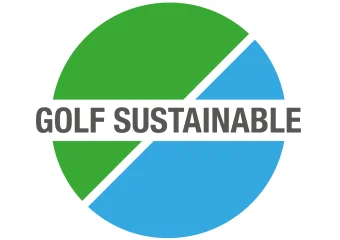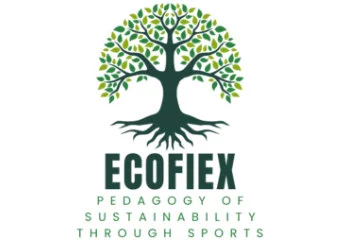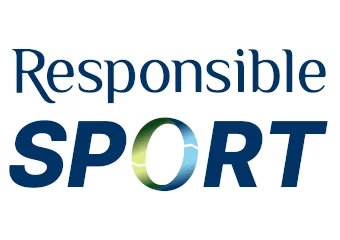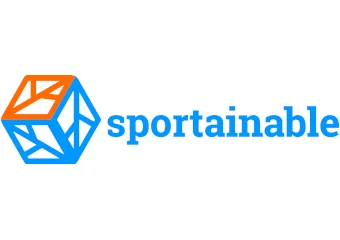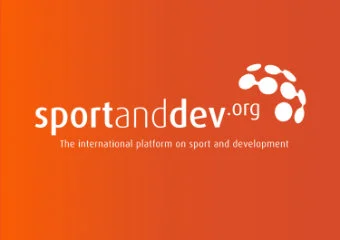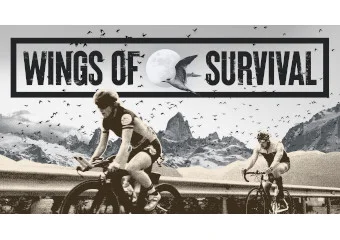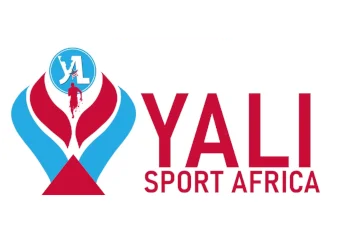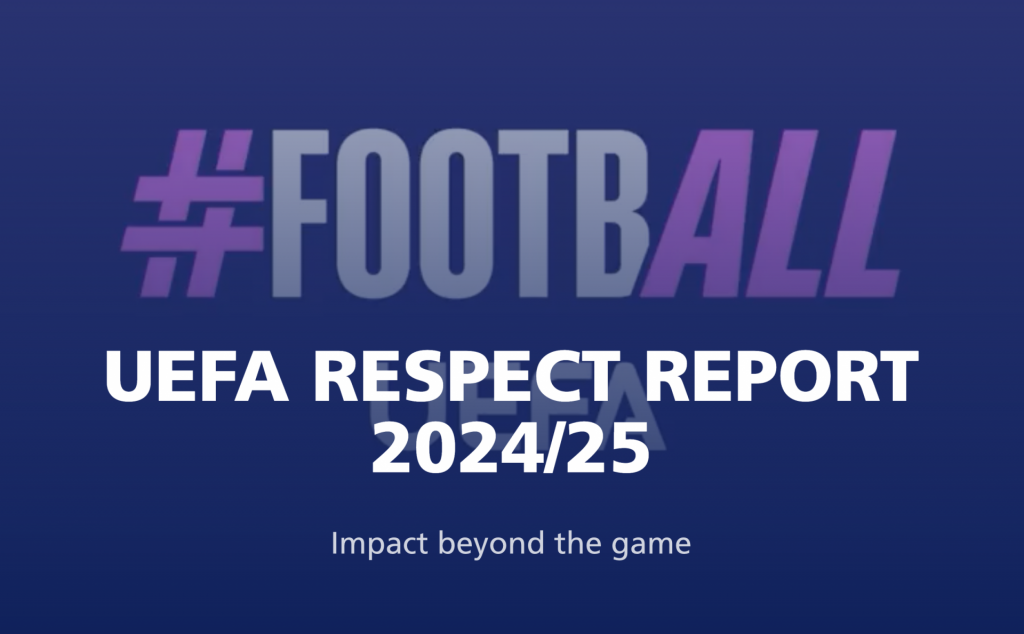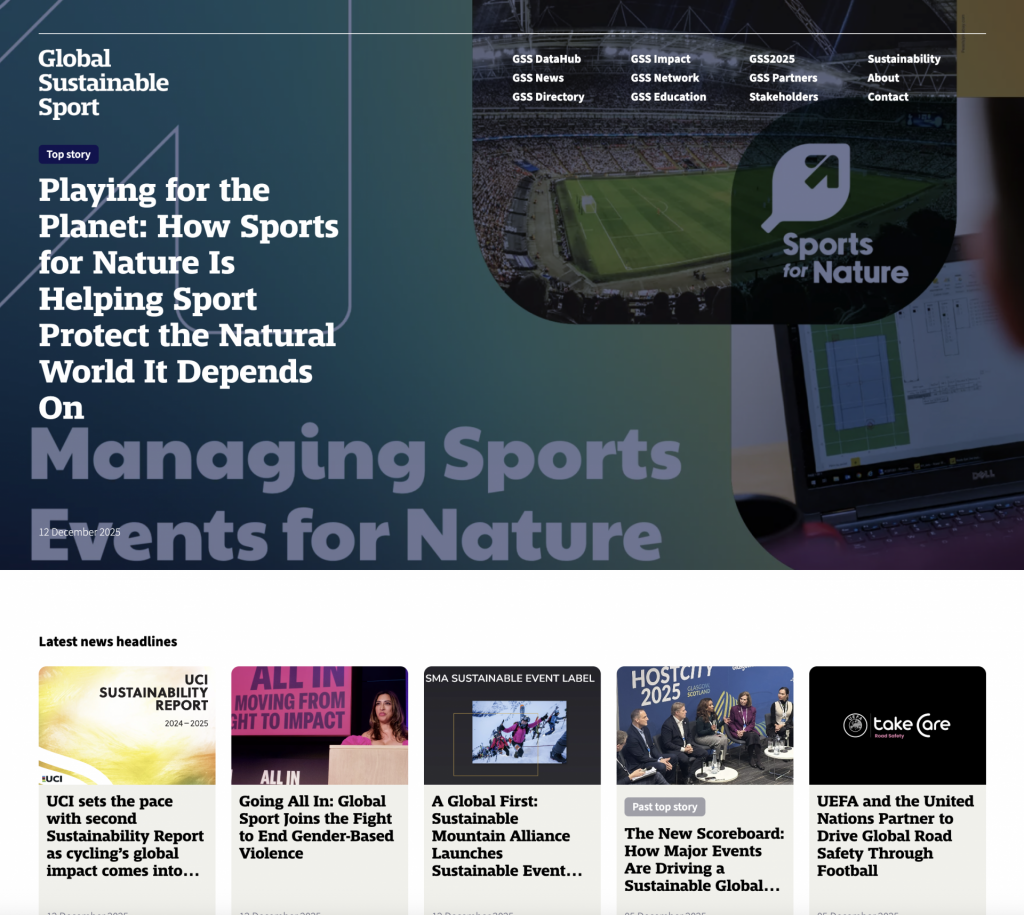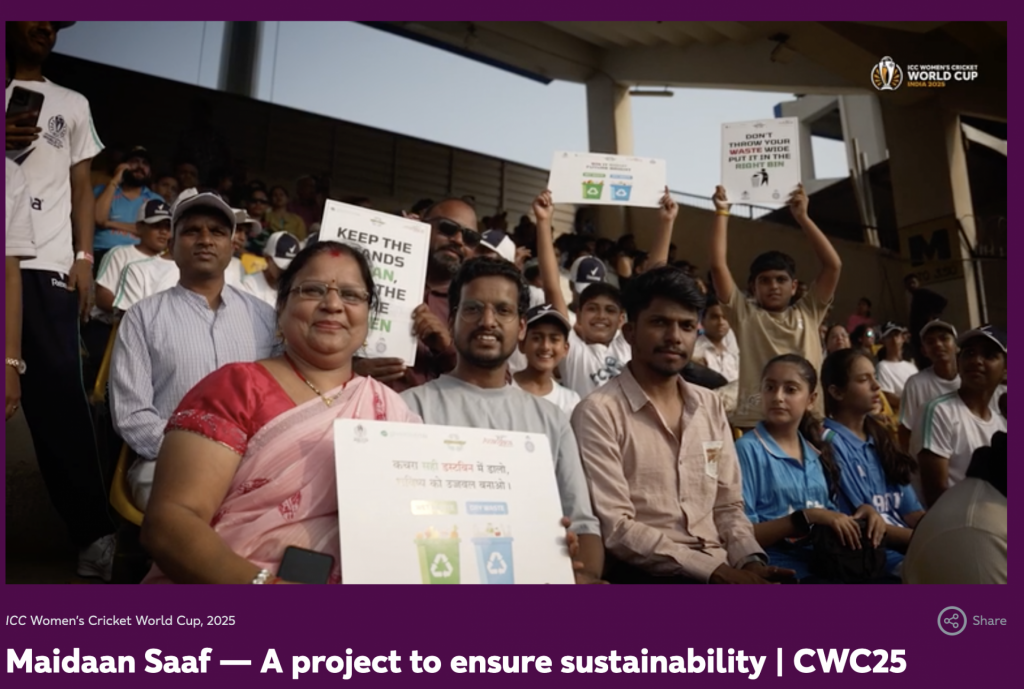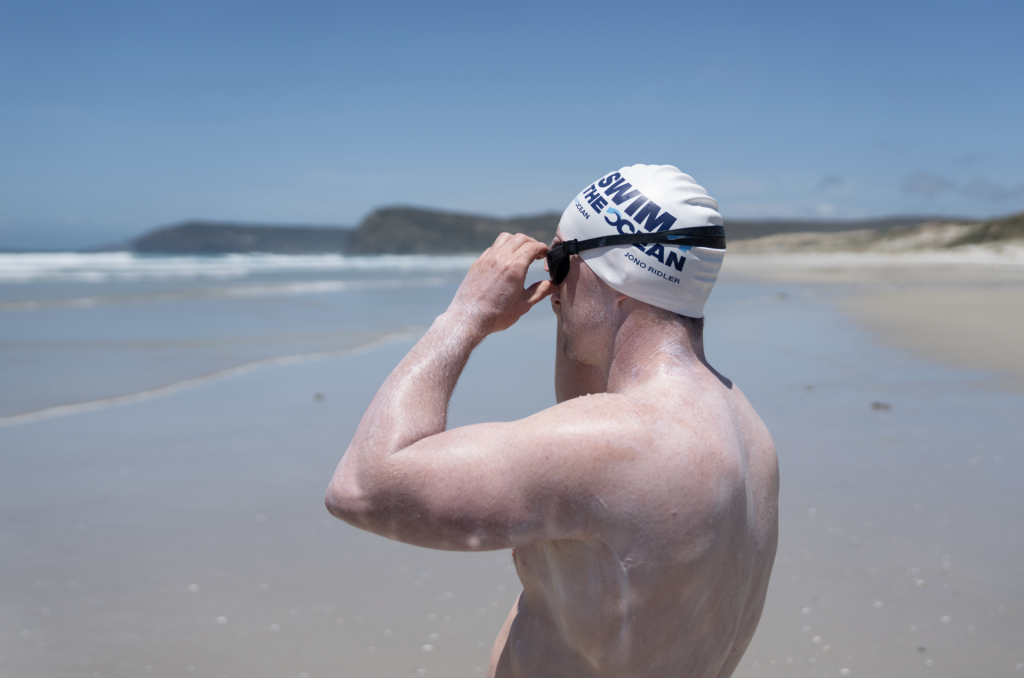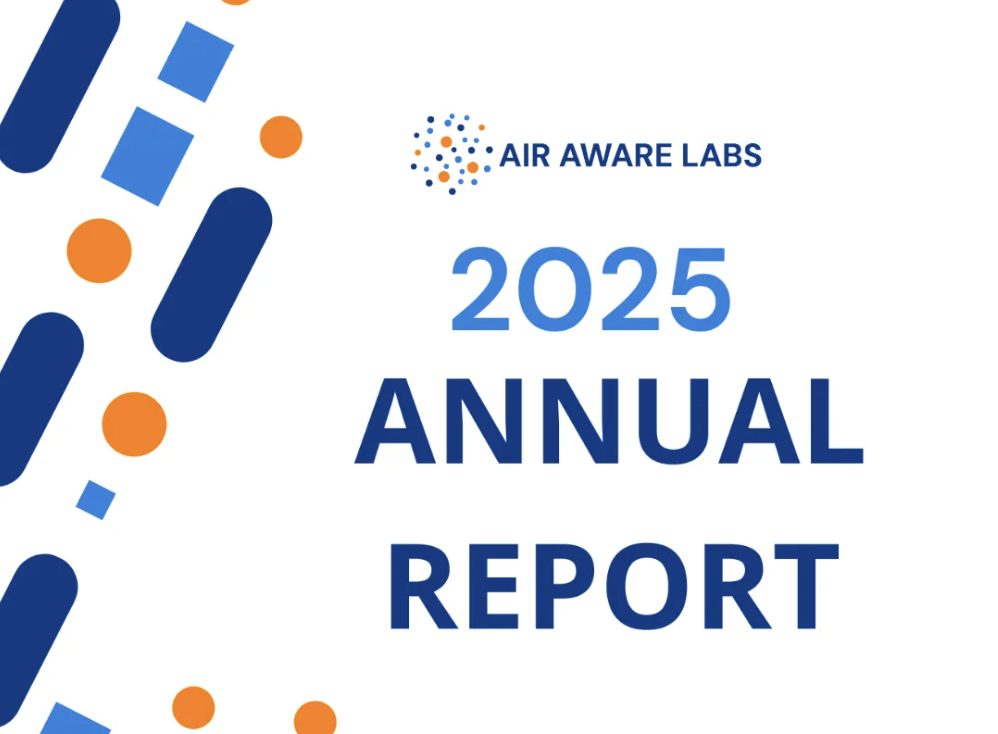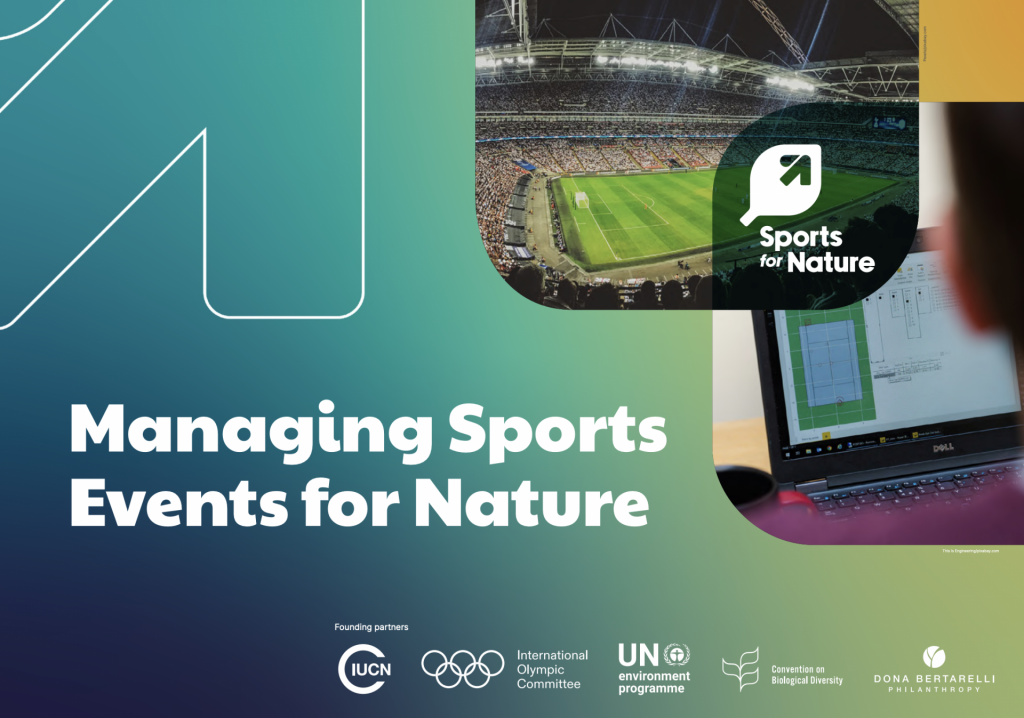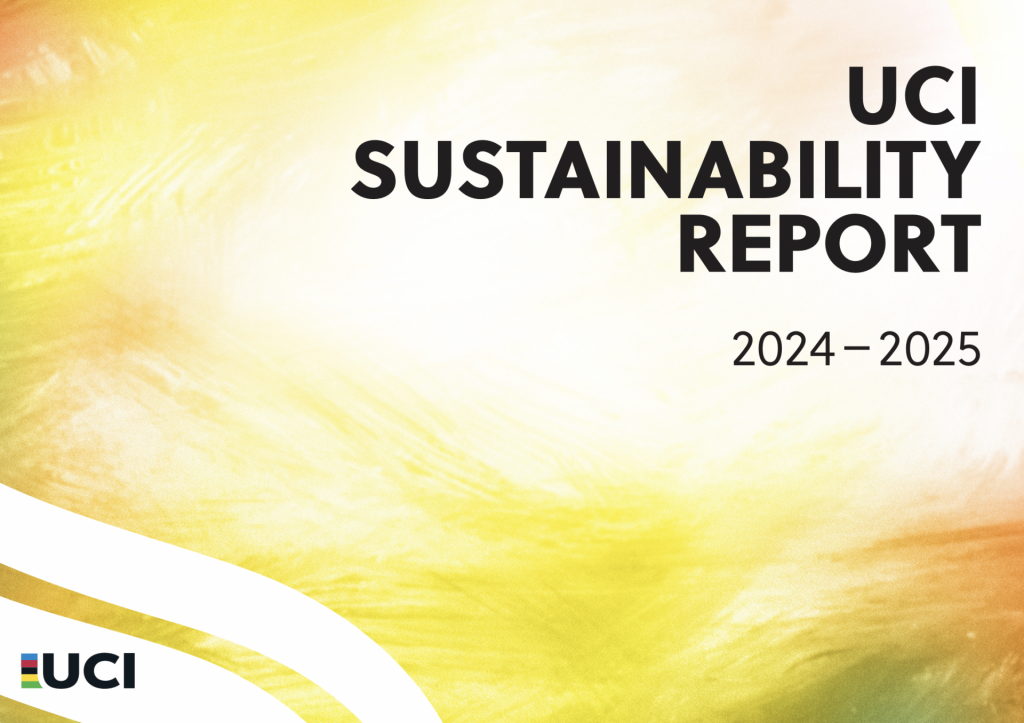To access our unique news archive of over 1,400 articles with insights on over 500+ sustainable sports organisations, join the GSS Network today.
Login here if you are a registered network subscriber.
News article
Playing for the Planet: How Sport is Tackling the Climate Crisis – Part 2
In the first part of this feature, we explored how the global sports industry is moving beyond token gestures and embedding sustainability into its core. We examined how nominees for the Sport Positive Awards are driving change through community engagement, education, biodiversity protection, leadership, public campaigns, and transparent reporting. The picture that emerged was of a sector finally waking up to its responsibilities and its power.
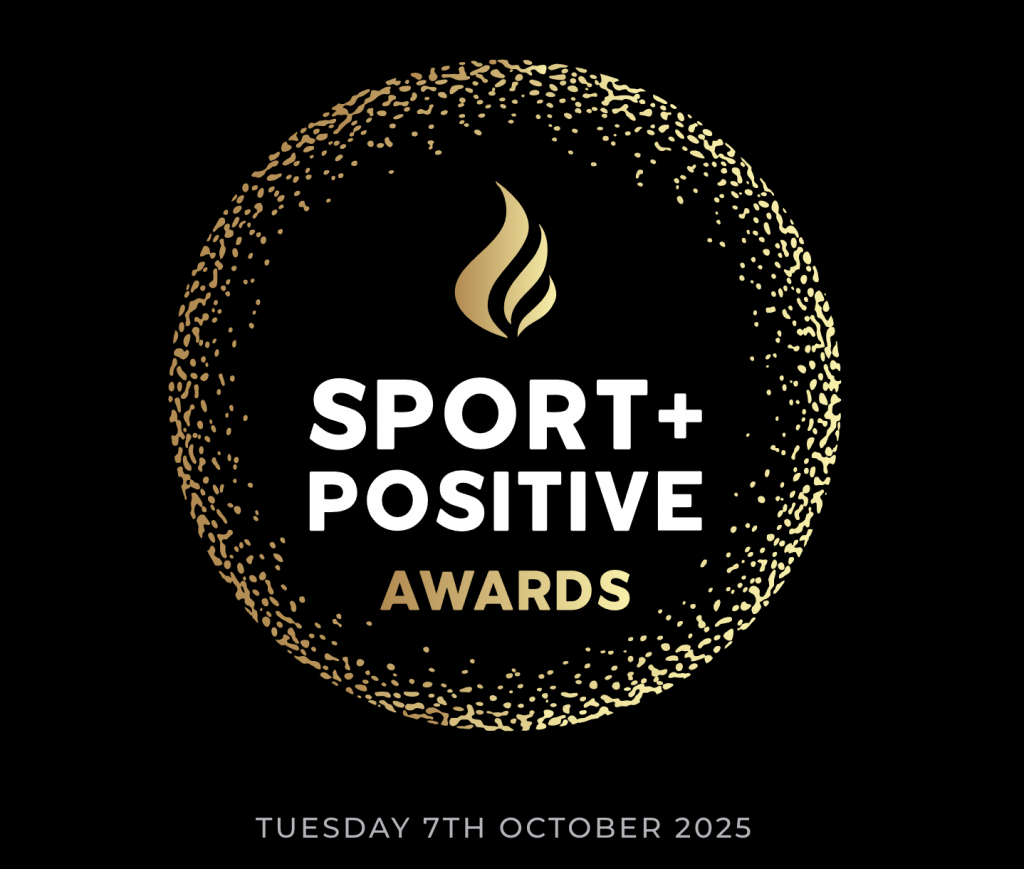
This second and final part completes that picture, delving into the remaining six categories. Here, the focus shifts to the engine room of change: the groundbreaking innovations, deep-rooted transformations, and powerful partnerships that are not just altering practices but reshaping the business and culture of sport itself. From the young trailblazers forging new career paths to the academic research underpinning the entire movement, these nominees demonstrate a sector that is increasingly sophisticated, collaborative, and ambitious in its approach to tackling the climate crisis.
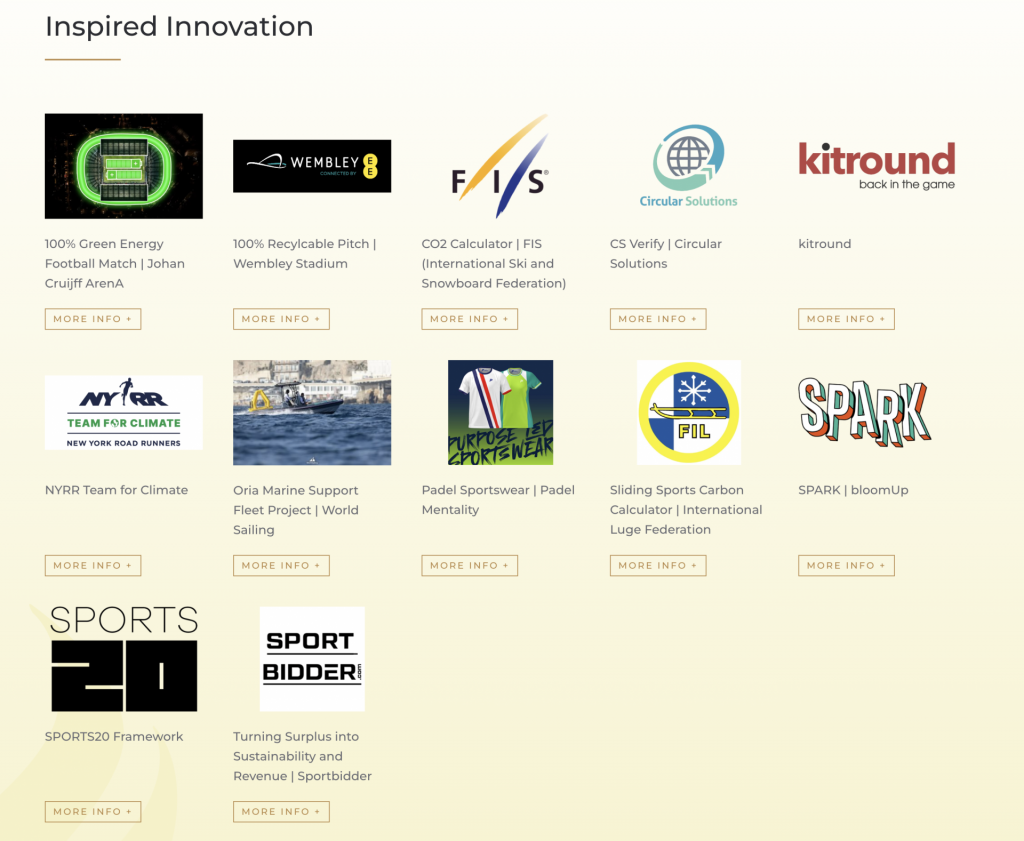
Inspired Innovation
This category celebrates the pioneering ideas and technologies that are solving sport’s unique sustainability challenges.
The Johan Cruijff ArenA in Amsterdam demonstrated the art of the possible by hosting a professional football match powered entirely by 100% green energy, using its on-site solar panels and super batteries.
London’s Wembley Stadium is tackling waste by developing a 100% recyclable pitch.
The International Ski and Snowboard Federation (FIS) has launched a free CO₂ Calculator that uniquely allows event organisers to model and reduce their carbon footprint during the planning phase, shifting the focus from offsetting to prevention.
To combat greenwashing, Circular Solutions has developed CS Verify, a proprietary platform using AI and blockchain to provide auditable verification of recycling performance at major events.
The UK’s first dedicated circular marketplace for sports apparel, kitround, is turning surplus kit into a resource that promotes sustainability and inclusivity.
The NYRR Team for Climate initiative by New York Road Runners allows marathon participants to raise funds that directly help offset and inset the carbon emissions of the race itself, including runner travel.
At the Paris 2024 Olympics, the Oria Marine Support Fleet Project saw World Sailing equip all 285 support vessels with technology to collect real-time data on fuel consumption and emissions, creating a benchmark for future events.
Padel Sportswear is redefining the apparel industry with a ‘made-to-order’ production model, ensuring it only makes what has already been sold.
The International Luge Federation and its partners developed the Sliding Sports Carbon Calculator, an AI-powered tool to help design more sustainable competition calendars by simulating travel emissions.
SPARK by bloomUp is a mobile and participatory youth initiative in Switzerland that tackles social isolation and inactivity by bringing non-competitive sports and cultural activities into urban spaces.
The non-profit SPORTS20 Framework provides a strategic step-by-step solution to help sports organisations of all sizes accelerate their sustainability efforts.
Sportbidder helps clubs turn surplus assets—from dugout seats to carpets—into revenue and emotional value through fan-focused auctions, preventing items from ending up in landfill.
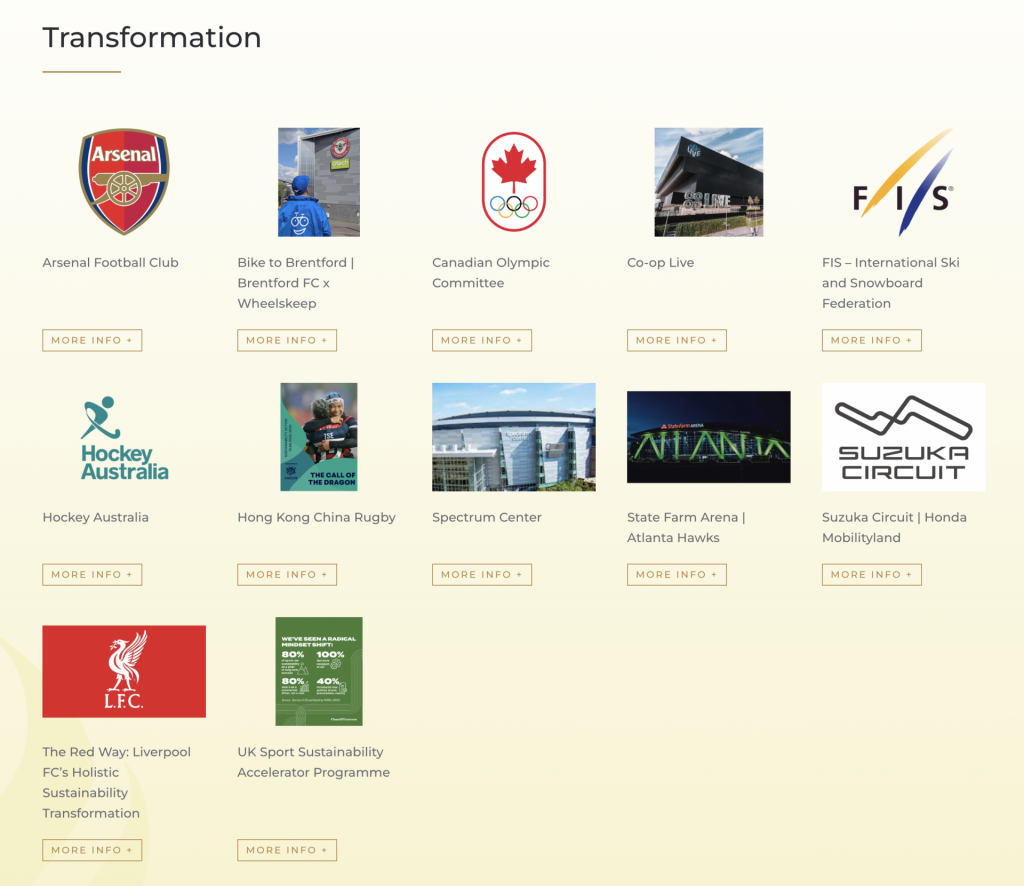
Transformation
Transformation requires a deep, organisation-wide commitment to change. This category recognises those who have embedded sustainability into their long-term strategy.
Arsenal Football Club has become the only club in the world to have its net-zero target approved by the Science Based Targets initiative (SBTi), aligning its action plan with the most ambitious global climate goals.
Through its “Bike to Brentford” campaign with Wheelskeep and Brentford FC successfully tripled the number of fans cycling to matches.
The Canadian Olympic Committee is using its Team Canada Impact Agenda to make sport safe, inclusive, and barrier-free across the nation.
Manchester’s new Co-op Live arena has set a new global benchmark for venues; designed from the ground up, it is 100% electric, powered by renewable energy, and has a zero waste to landfill policy.
The International Ski and Snowboard Federation (FIS) launched a groundbreaking Impact Programme, a holistic roadmap that includes providing carbon calculators, forming a refugee athlete team, and achieving gender parity on its management board.
Hockey Australia has rapidly made climate action a core priority, committing to halve its emissions by 2030 and now using robust emissions data to inform its policies.
Hong Kong China Rugby has launched “The Call Of The Dragon,” described as rugby’s first comprehensive Sustainability Action Plan, aiming to transform not just its own operations but the landscape of the sport.
Charlotte’s Spectrum Center is ensuring sustainability remains top of mind during its major renovation project, aligning its goals with the city’s plan to be carbon neutral by 2030.
The Atlanta Hawks’ State Farm Arena became the first venue in the world to earn TRUE Platinum certification for its zero-waste operations.
Japan’s iconic Suzuka Circuit has become a model for motorsports, achieving net-zero emissions for Scope 1&2 and 100% renewable energy use for the 2025 F1 Japanese GP.
Liverpool FC’s holistic strategy, The Red Way, has seen the club reduce carbon emissions by 15% in four years by embedding ESG principles into every aspect of its operations.
The UK Sport Sustainability Accelerator Programme has become the world’s largest multi-sport national sustainability project, supporting 30 Olympic and Paralympic governing bodies in embedding sustainability into the core of elite sport.
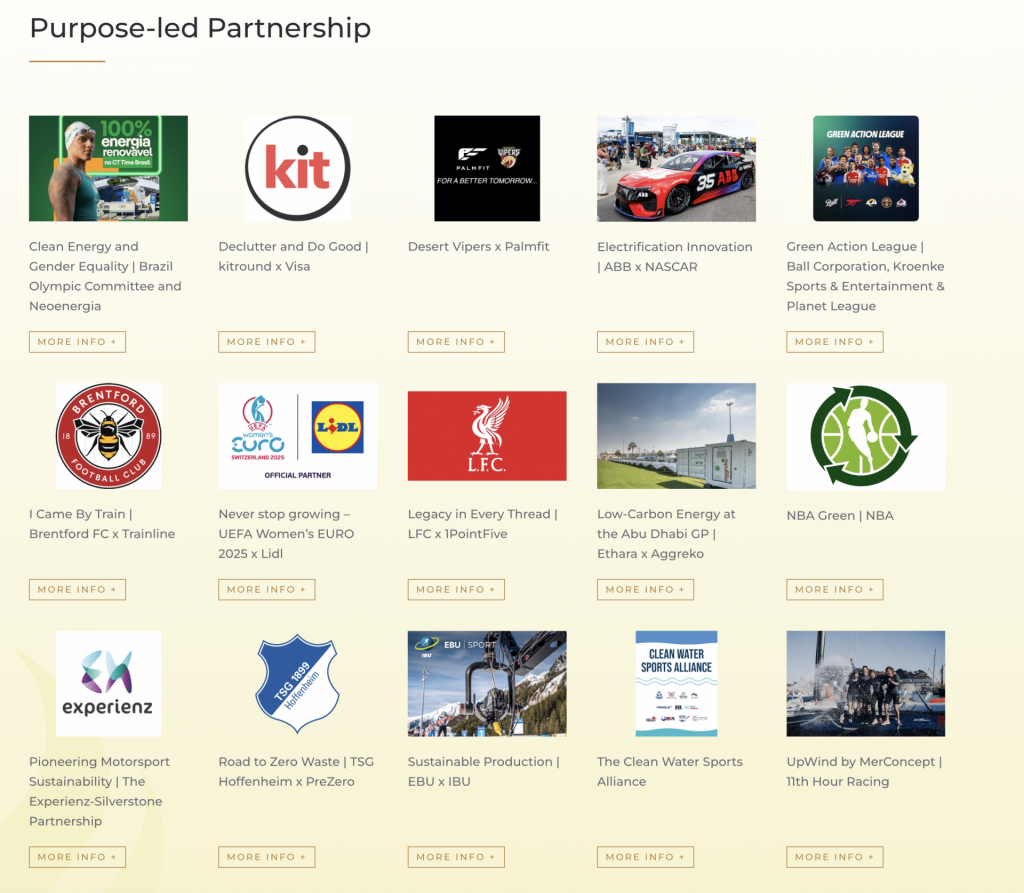
Purpose-led Partnership
Collaboration is essential for systemic change, and these two categories celebrate the powerful alliances being forged. Partnerships with commercial entities include:
The Brazil Olympic Committee and Neoenergia, a collaboration that supplies renewable energy to its training centre while also promoting gender equality in sport.
kitround and Visa teamed up for the “Declutter & Do Good” campaign, which collected over 6,000 items of pre-owned sports kit and generated over £60,000 for grassroots charities.
The Desert Vipers and Palmfit created the first top-tier cricket kit made from 100% recycled materials.
ABB and NASCAR are working to decarbonise the racing series’ operations while educating fans on electrification.
The Green Action League, a collaboration between Ball Corporation, Kroenke Sports & Entertainment, and Planet League, inspired over 9,000 fans across four teams to take 41,500 climate actions.
Brentford FC and Trainline offered discounted rail travel for away matches, a first in the Premier League.
UEFA Women’s EURO 2025 and Lidl partnered to drive social and environmental impact across all eight Swiss host cities.
Liverpool FC and 1PointFive launched the world’s first football jersey whose carbon footprint will be addressed via Direct-Air-Capture technology.
At the Abu Dhabi Grand Prix, Ethara and Aggreko partnered to decarbonise the event’s temporary power, removing diesel entirely.
The NBA Green programme advances the league’s climate agenda through its globally recognised platform.
A partnership between Experienz and Silverstone Circuit is systematically tracking Scope 3 emissions from major motorsport events.
TSG Hoffenheim and PreZero are working on a “Road to Zero Waste” at the club’s stadium, achieving a 91% recycling rate.
The European Broadcasting Union (EBU) and the International Biathlon Union (IBU) are collaborating to reduce emissions from live sports broadcasting.
The Clean Water Sports Alliance unites over 20 UK water sports governing bodies to advocate for healthy blue spaces.
Upwind by MerConcept, powered by 11th Hour Racing, is transforming gender equity by creating a professional pathway for women in elite offshore sailing.
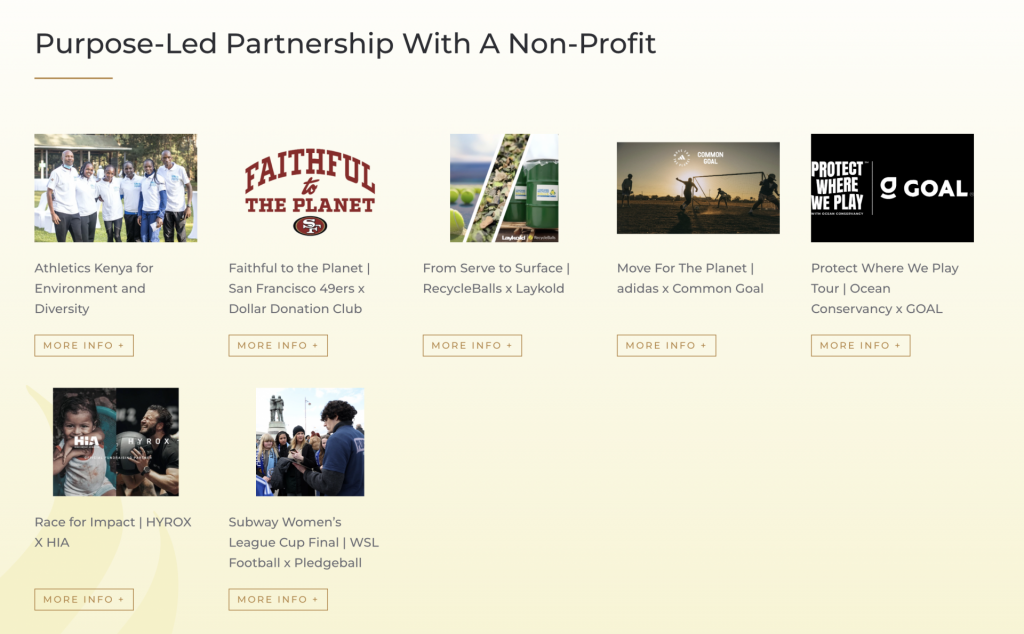
Purpose-led Partnership With A Non-Profit
Alliances with non-profits are equally critical.
Athletics Kenya is collaborating to address the triple planetary crisis of climate change, biodiversity loss, and pollution.
The San Francisco 49ers’ Faithful to the Planet programme takes the team’s sustainability impact beyond the stadium walls to support global environmental projects.
RecycleBalls and Laykold have created a new supply chain that turns over 2.1 million used tennis balls a year into the foundation for new high-performance courts.
adidas and Common Goal’s Move For The Planet initiative funds projects that make sports facilities in communities most affected by climate change more resilient to extreme weather.
The Protect Where We Play Tour, a partnership between Ocean Conservancy and GOAL, is piloting a reusable cup programme at venues across North America to prevent one million single-use cups from entering the waste stream.
The Race for Impact initiative from HYROX and High Impact Athletes (HIA) embeds high-impact charity fundraising into the fitness race experience, allowing participants to race for causes like climate solutions and global health.
The collaboration between WSL Football and Pledgeball at the Women’s League Cup Final engaged fans on climate action, providing a blueprint for how major fixtures can drive sustainable change.
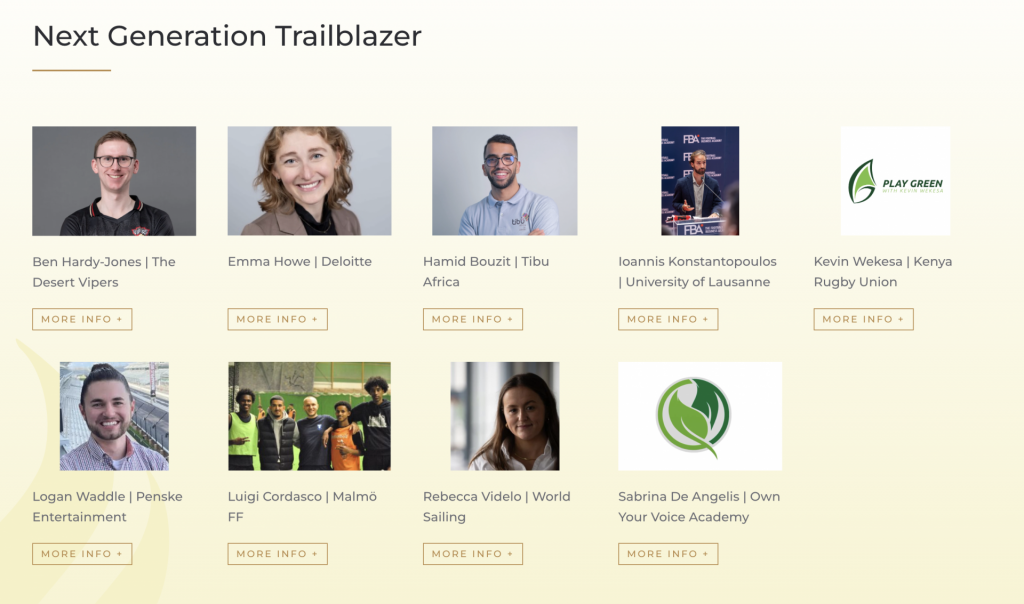
Next Generation Trailblazer
This award celebrates the young leaders shaping the future of the industry.
Ben Hardy-Jones of The Desert Vipers has spearheaded the team’s sustainability efforts, authoring sport’s first Plastic Impact Report and driving the change that led to the team playing in fully recycled materials.
Emma Howe has been instrumental at Deloitte, orchestrating two zero-waste corporate events that diverted over 97,000 pounds of waste from landfill and founding the company’s 1,000-strong US Green Team Network.
Hamid Bouzit, at just 23, plays a leading role at Tibu Africa in Morocco, designing transformative sports programmes for out-of-school youth and young women.
Ioannis Konstantopoulos, a researcher at the University of Lausanne, is also a sustainability advisor and has developed several educational courses on the topic for organisations like the Football Business Academy and the International Olympic Academy.
Kevin Wekesa, a prominent Kenya 7s rugby player, has championed his “Play Green” initiative, leading the planting of over 1,500 trees and influencing other sports federations in Kenya to adopt plastic reduction policies.
Logan Waddle of Penske Entertainment has propelled the Indianapolis Motor Speedway and the INDYCAR Series to the forefront of sustainability in American motorsports in just a few years.
Luigi Cordasco of Sweden’s Malmö FF has led community initiatives like the “Night Football” programme, which provides a safe environment for over 1,100 youth in high-risk areas.
Rebecca Videlo, a rising star at World Sailing with a background in Marine Biology and Sustainability, has led on several key projects, including the federation’s online Sustainability Sessions.
Sabrina De Angelis is the founder of Own Your Voice Academy, a digital platform designed to engage young people in climate action through sport, creativity, and storytelling.
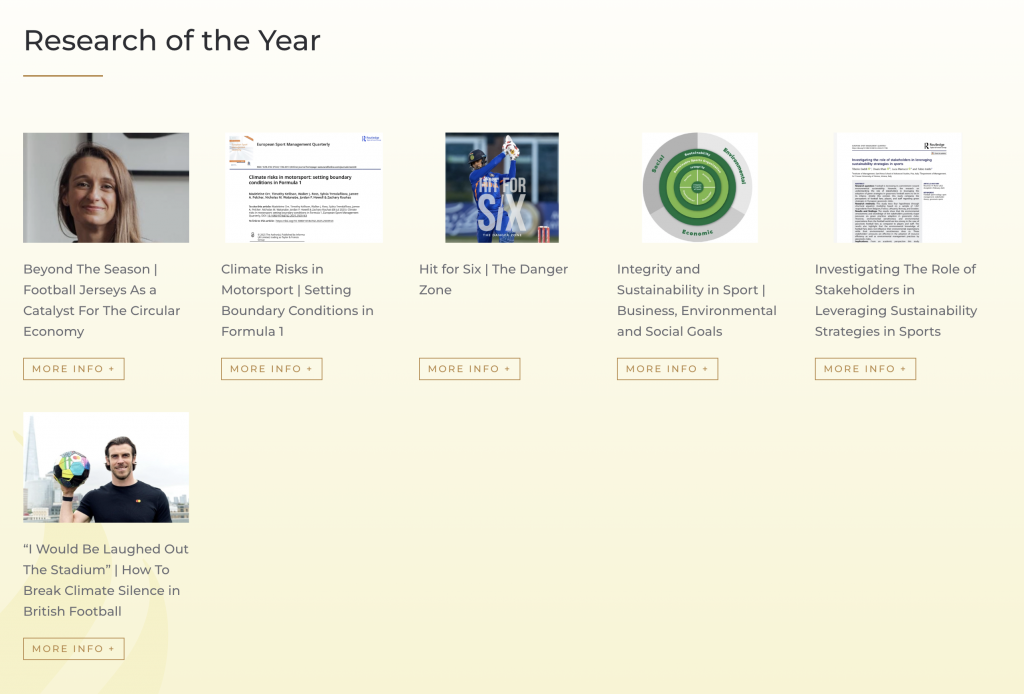
Research of the Year
Underpinning the movement is a growing body of academic and applied research that provides the evidence base for action.
Joanna Czutkowna’s doctoral research at Loughborough University explores how circular approaches to football kits can reduce environmental impact while also removing social and financial barriers to participation.
A study on Climate risks in motorsport applied evidence-based boundary conditions to 25 Formula 1 circuits, finding that extreme heat is the biggest threat, affecting 19 of the locations.
The Hit for Six: the danger zone report documents the present-day realities of climate change on cricket in India, containing the first comprehensive heat exposure data for a major global sporting league.
The research book Integrity and Sustainability in Sport argues for the first time that these two concepts are fundamentally interlinked.
A paper Investigating the role of stakeholders used data from over 1,400 respondents to show how fans, players, and staff can effectively pressure grassroots football clubs to adopt sustainability practices.
The briefing “I would be laughed out the stadium” is the first to explore the phenomenon of “climate silence” in British football, revealing that while 84% of fans accept the science, most rarely discuss it in football contexts due to a misperception of what others believe.
Across all twelve categories, a clear narrative emerges. The sports industry is no longer just talking about climate change; it is acting. From the intricate logistics of a zero-waste arena to the simple act of a fan choosing to cycle to a match, a collective and systemic transformation is underway. The work is complex, the challenges immense, but as these nominees show, the power of sport to inspire change, on the field and far beyond it, should never be underestimated.
The Sports Positive Summit takes place from October 7-8 October 2025 at the QEII Centre, London.
Read moreSport Positive
Join the GSS Alliance Partners programme today
Stay ahead of the game with our FREE weekly newsletter, delivering the latest sport and sustainability news from around the globe straight to your inbox
Join the GSS Network programme today
Register for GSS Workshops today
Join the GSS Education programme today


